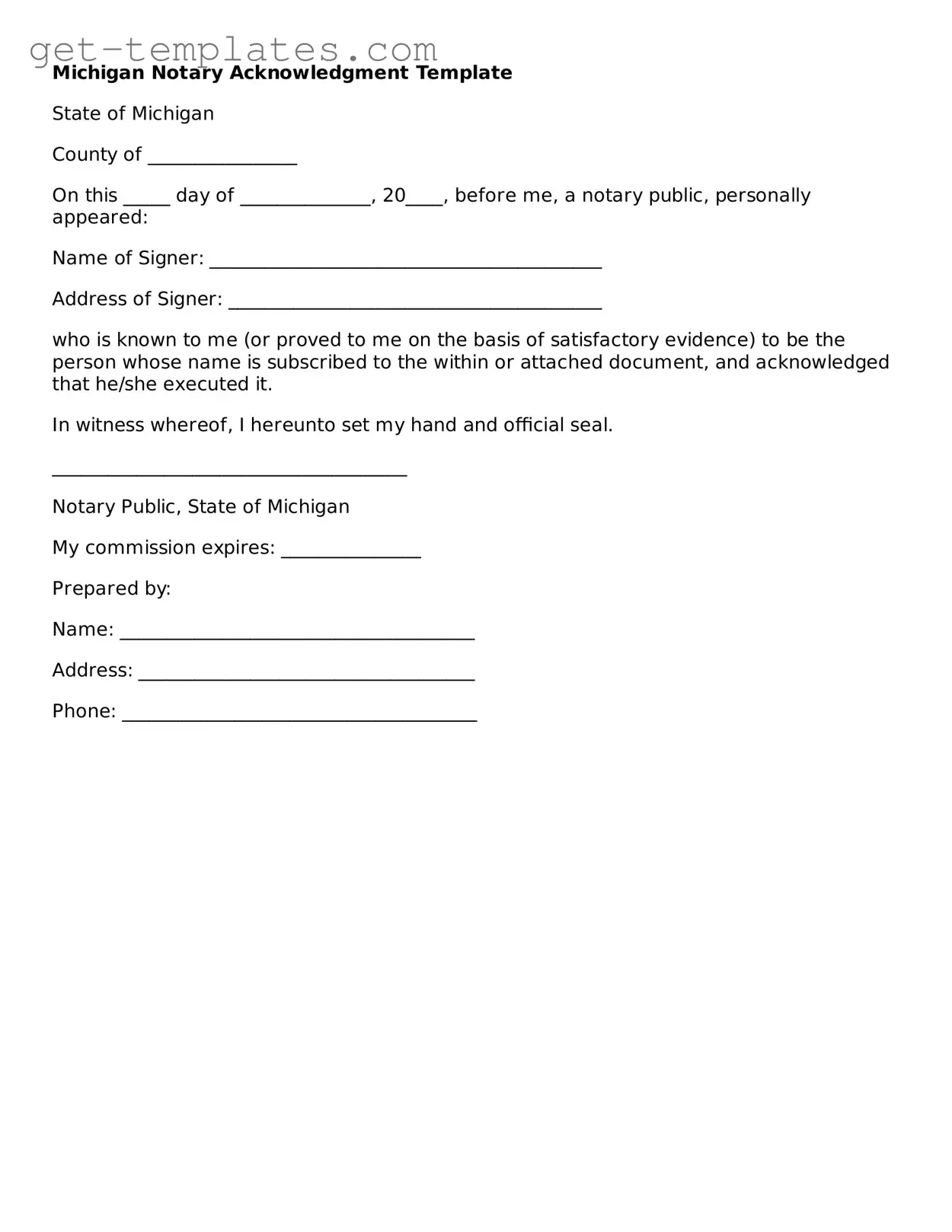Attorney-Approved Notary Acknowledgement Document for Michigan
The Michigan Notary Acknowledgment form is a legal document used to verify the identity of individuals signing a document. This form confirms that the signer appeared before a notary public and acknowledged their signature willingly. Understanding its purpose and requirements is essential for ensuring the validity of various legal transactions in Michigan.
Get Document Online

Attorney-Approved Notary Acknowledgement Document for Michigan
Get Document Online
You’re halfway through — finish the form
Finish Notary Acknowledgement online — edit, save, download made easy.
Get Document Online
or
⇓ PDF Form
